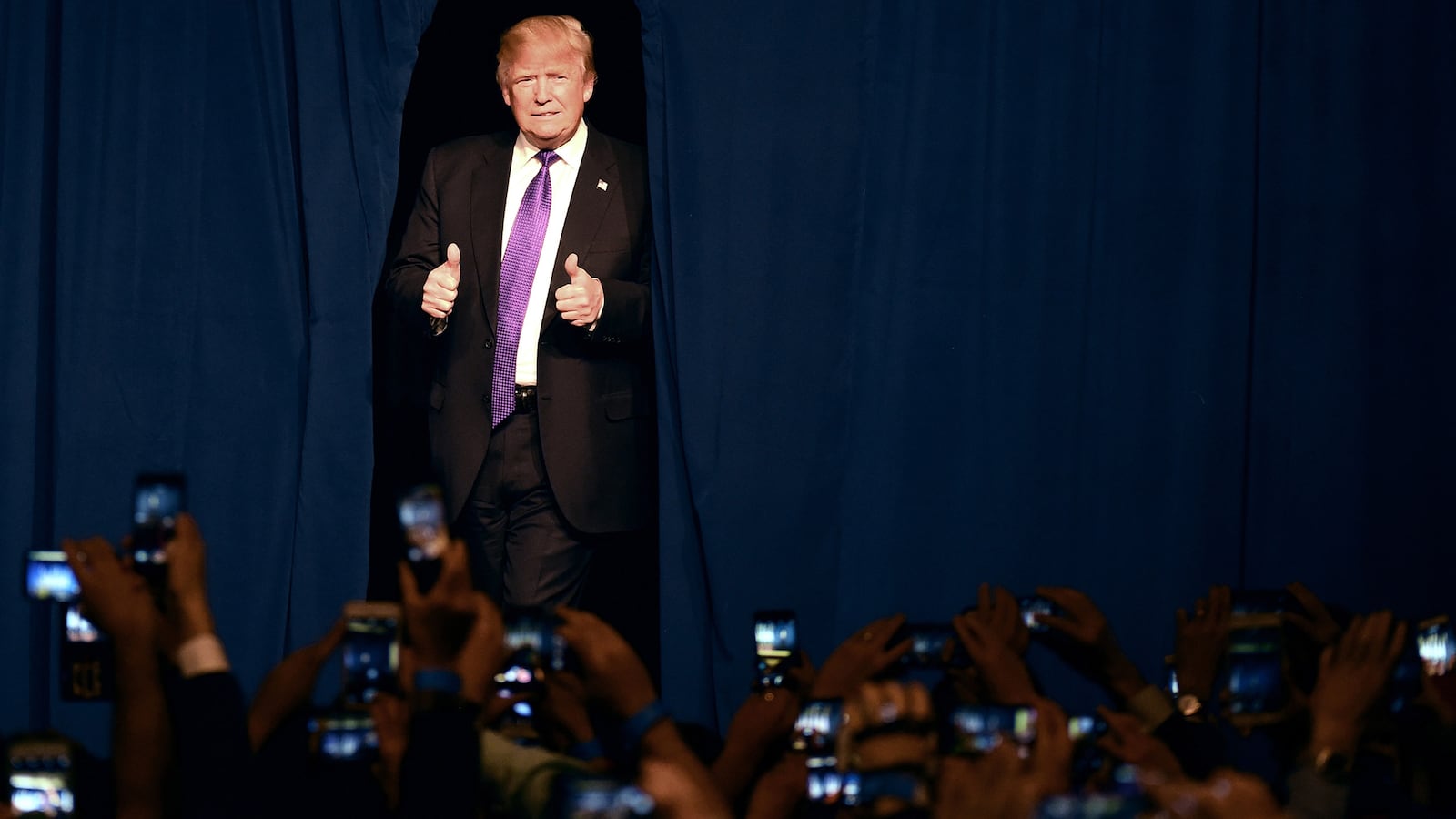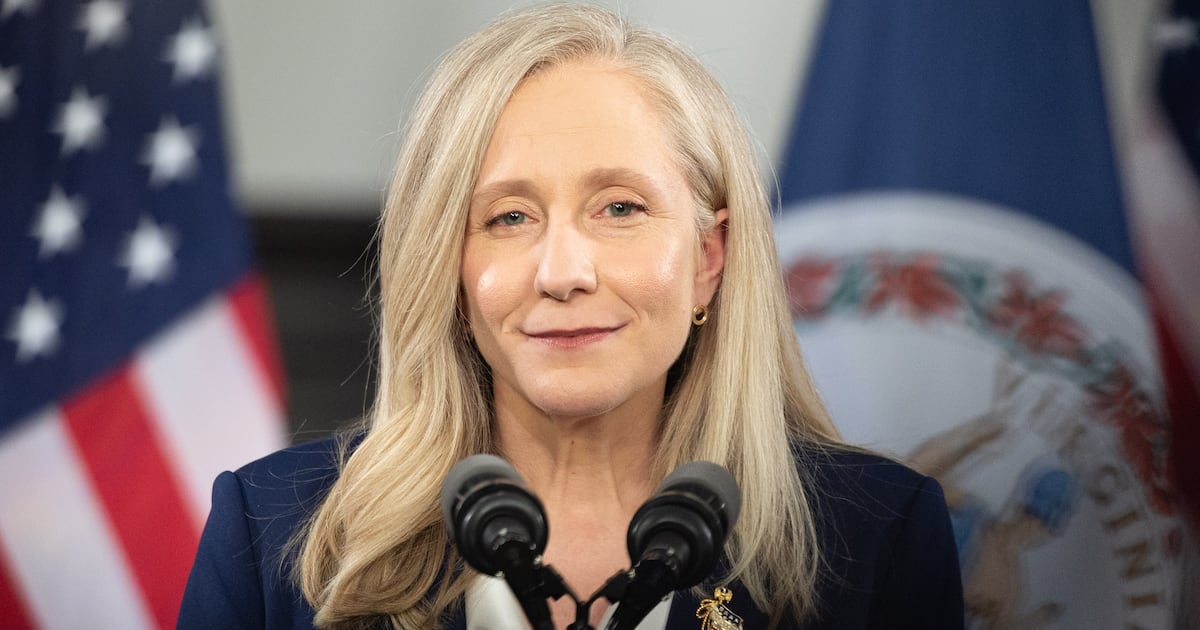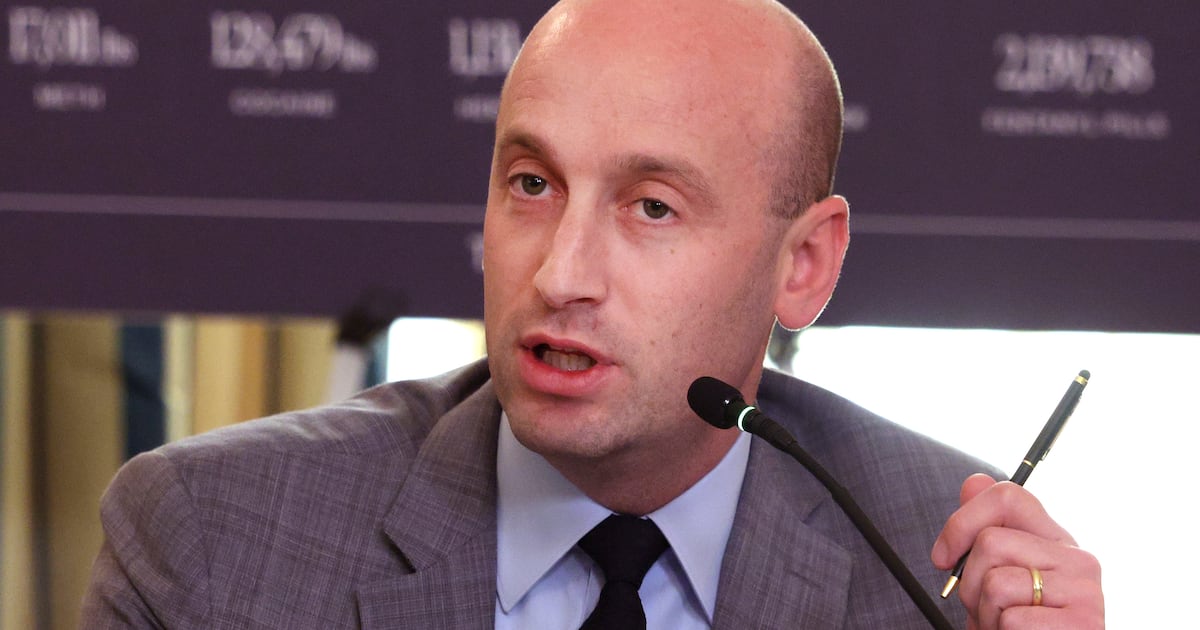On Tuesday afternoon, Physician to the President Ronny Jackson discussed how President Trump’s physical examination went on Friday. For several minutes, Jackson ticked off statistics.
“Vitals as follows,” he began, and in one breath, spewed out numbers. “Age, 71 years, 7 months at the time of the exam. Height 75 inches. Weight 239 pounds. Resting heart rate 68. Blood pressure 122/74. Pulse oximetry, 99 percent on room air. Temperature was 98.4. … Eyes, president’s uncorrected visual acuity is 20/30 bilaterally with corrected visual acuity of 20/20 bilaterally.”
After all the hullabaloo of the physical, Trump’s numbers boil down to two facts. First, Trump is in crappy shape and could use a diet, or he’s in danger of dying from heart disease or a stroke, whichever comes first. And second, as much as he might tout his “stable genius,” there’s no clinical proof of it; only that he can pass a test whose questions involve identifying animals and sketching a clock. Trump’s mental fitness remains fuzzy and unknown.
Jackson’s appearance, which he importantly prefaced with the note that Trump had permitted him to release these numbers, showcased a medical briefing that told us some things, but also told us nothing at all.
Here’s the one blaring thing we learned: With a height of 6 feet 3 inches and clocking in at 239 pounds (three pounds more than last year when he was examined by his personal doctor, Harold Bornstein), Trump remains overweight and teeters precariously close obesity at 29.9, according to his BMI ratios.
Trump’s cholesterol levels have also spiked. His cholesterol levels under Bornstein rang in at 169, but his cholesterol this year was 233, which experts would consider dangerous. Jackson said he had a sit-down with Trump about escalating the cholesterol-reducing drug with a low-dose Crestor and eating better to avoid clogging his arteries.
That Trump’s specific health statistics makes him an overweight individual despite having a height and weight comparable to a NFL player showcase the difference a little exercise (something else Jackson suggested for the president) make, as tweets illustrate.
Taken at Twitter-value, it’s a medical marvel: Look at what a difference muscle mass makes compared to fat! But the photos also make an excellent point about Trump’s health: He is, after all, a very tall and broad man, so his weight will reflect that.
But the numbers that Jackson reported on behalf of Trump suggest that this is a man who has very little muscle mass and is essentially a walking glob. He’s not very different from his fellow American in this respect: 35 percent of Americans are obese, with another 34 percent considered overweight, according to the National Institute of Health. Trump’s alleged favored diet of burgers and fries, coupled with a marked disdain for exercise, certainly don’t help.
Jackson’s evaluation suggests that no matter his constant assurances throughout the briefing that Trump is in “excellent health,” the president has been chided to lose weight. Jackson has gone so far as to suggest Trump try to lose 10 to 15 pounds by the time his checkup next year, which comes out to about a pound a month. It’s a doable goal, but one that Trump will have to actively engage in by eating more vegetables, cutting down on the fat content of his meals, and doing a little more physical activity beyond shuffling around and golfing at Mar-a-Lago.
Does an overweight president really matter, though? Trump can lift weights and run all he wants, but at the end of the day, the decisions he makes are going to be determined by his mental fitness.
The weeks before the physical saw a call for the president’s mental health to be evaluated, despite his protests that such a test would be unnecessary; according to Jackson, Trump requested some sort of neurological examination. Jackson responded with the Montreal Cognitive Assessment, a 10-minute, 30-question test that measures cognitive ability, on which trump scored a perfect 30.
Importantly—and this is very important—the test is not a neurological one. MoCA, as it’s referred to, does not measure mental faculties nor does it quantify the decision-making power of Trump’s brain. Instead, MoCA is often used as a preliminary indicator of mental impairment for those with attention disorders, learning disabilities, and memory problems, often being administered after a patient suffers from a brain injury.
MoCA includes memory recall tests, drawing a clock and a 3D cube, simple addition and subtraction, and recognizing “low-familiarity animals,” such as rhinoceroses, among other tasks. It’s a test that is simple and meant to measure Trump’s ability to comprehend simple tasks, not whether he is psychiatrically healthy. A person can perform cognitive tasks well all day long, but that does not prove mental health and psychiatric wellness, despite the 30/30 score the president will surely tout in the months to come.
His overall health? No matter what Jackson says, it’s not great. Trump is reflective of the run-of-the-mill white man in America, and while that might win him elections, it still means he’s in terrible health.
Editor's Note: This story has been edited to reflect an error calculating BMI, in which the previous calculation falsely determined Trump to be obese. We apologize for the error.






